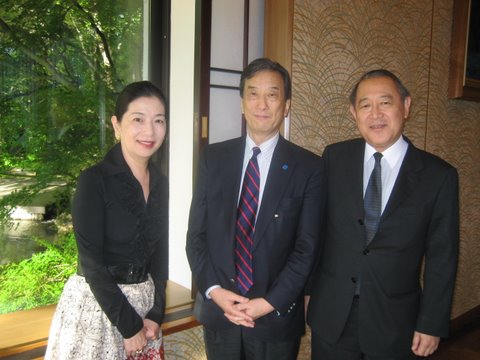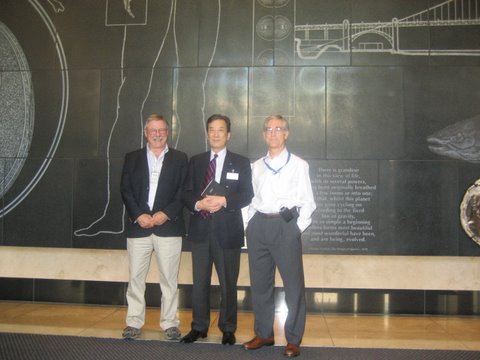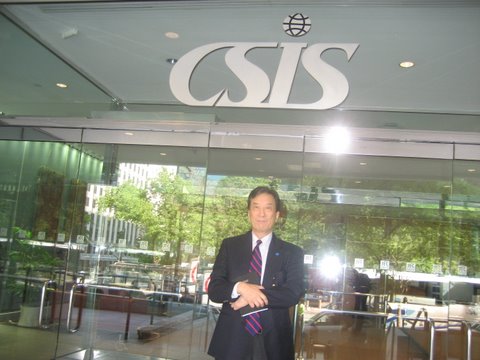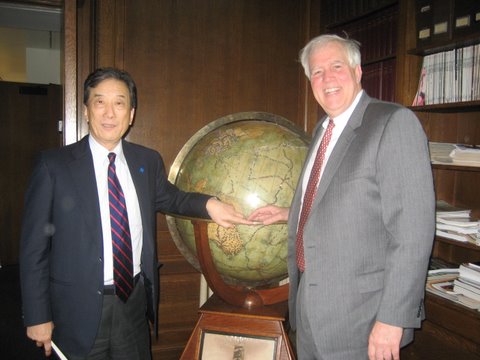I have written several times here(in Japanese)(Ref.1)on the Chief Science Advisors to the UK Government. As the representatives of the scientists of the United Kingdom, they are well trusted by the science community and have great responsibilities to the government in giving advices in their policy makings.
This post is currently served by Sir John Beddington from three years ago, if I remember correctly. He is a wonderful person. I happen to be especially close to his predecessors Sir David King, and Robert May (later the President of the Royal Society, Lord May of Oxford); we trust each other and get along quite well.
This is one of the most highly respected positions in the British Government (Ref.1) (both links are in Japanese), and therefore a person is carefully and well selected to assume the responsibility. This background is observed clearly in the healthy relations between the science community and legislators – particularly the Prime Minister (although the distance varies depending on the Prime Minister of the time. Tony Blair, for example, is said to have been quite eager and used to have discussions with the Chief Scientific Adviser almost weekly… I think that, in the end, it is a matter of the level of insights of the top of the administration how they use these wonderful advisors….)
Taking the opportunity of Sir Beddington’s visit to Japan, GRIPS invited him to give a lecture and a panel, and the event was moderated by Mr. Akira Ikegami, a well known journalist/TV broadcaster. The main topic was “3.11 and Fukushima”. It was a quite nice conference, with lots of participants, good Q&As from the audience and twitter.
I was invited to ask first question to Sir Beddington after his speech. Its video record is uploaded on Youtube (part 1)(part 2) and summary document is available at these links (Ref.1 in Japanese) (Ref.2 in English) .
His presentation was very clear and good. I understood very well that he was speaking with full sensitivity to political issues and process. I hope you will learn a lot from his lecture on how to communicate/work with governments. On the other hand, I think it would be interesting also to imagine what Japanese people in such a position would say or act if they were in a similar circumstance.
My question appears right in the end of Dr. Beddington’s presentation (I urge you to listen to this…), after a comment by Mr. Ikegami, the host.
Fukushima is a global issue and the lecture was given at the timing when we were waiting for the results of the investigations by the IAEA.
Good questions were raised from the floor, too.




